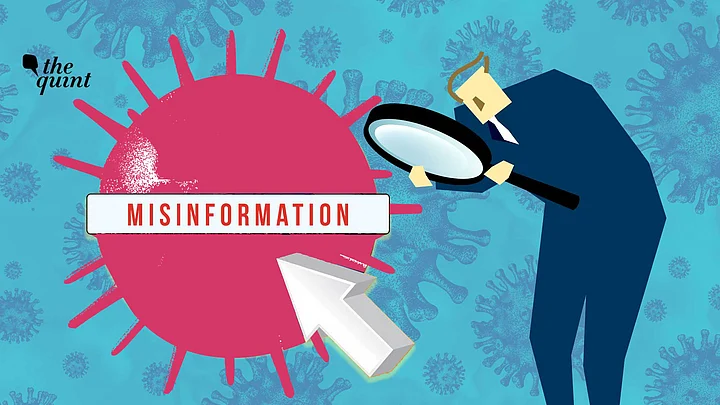A conspiracy theory plagued the internet which claimed that the novel coronavirus is man-made and was created in a lab as a bioweapon in by a Chinese scientist Deyin Guo.
Days later, a video went viral on the internet claiming that the Chinese government had started killing people on the streets. The video, which was an alibi, showed policemen with guns in one part of the clip and people wailing on the streets in the other.
Needlessly to say, fact-checkers across the globe found this to be fake. But before these forwards are verified, they create havoc on the internet. And in case of an infodemic like this, it adds to panic, fear and chaos.
Speaking to The Quint, Daniel Funke, a fact-checker working in USA’s PolitiFact said, “The biggest challenge when debunking misinformation about the coronavirus is the lack of confirmed information about the disease. Scientists are still working to learn more about COVID-19, including how it spreads and how severe it actually is. That makes it hard to answer readers’ questions.”
The coronavirus pandemic, which was first reported in China’s Wuhan in December 2019, has claimed the lives of over 10,000 people globally as per the data from John Hopkins University.
And in the absence of any known cure or source of virus, conspiracy theories and remedies have been shared online, which don’t just mislead people but can also cause potential harm.
Internet Abuzz With Conspiracy Theories and Fake Remedies
In the initial stages of the virus, several posts on social media suggested that drinking hot water, or garlic water could help cure the virus. Some suggested that avoiding chicken could help as chicken was the source of the virus.
However, doctors and even WHO has refuted the claim. While Dr Sumit Ray, Senior Consultant, Critical Care Medicine told The Quint that the ‘effect of garlic or garlic water hasn’t been studied in the scientific way’. While WHO says that garlic is healthy but ‘there is no evidence from the current outbreak that eating garlic has protected people from the coronavirus’.
But misinformation is not just being propagated by social media, in various countries including India, the mainstream media has been caught spreading misinformation which, in turn, leads to panic.
Italy, which has seen the highest number of deaths due to coronavirus, is reeling under the same problem.
Carlo Canepa, a fact-checker based in Italy told The Quint, “Many Italian newspapers have published articles suggesting that the virus was created during a bioweapon experiment in a laboratory in Wuhan. With the help of our international colleagues, I’ve explained that there was no evidence to support this claim.”
The theory had created waves worldwide. The Quint too debunked it to prove how there is no evidence to support it.
Fact-Checkers Working Round the Clock
Despite efforts by tech companies like Twitter, Google, Facebook, there has been a surge in misinformation about the coronavirus which is keeping fact-checkers on their toes.
In the last three months, International Fact-Checking Network (IFCN) has published over 1,000 fact-checks with the help of fact-checkers from 45 countries.
Recalling the early days of the pandemic, Turkey-based fact-checker Emre Saklıca said that due to the limited available data on COVID-19, fact-checking became an uphill task.
“The most difficult moments were the first days of the outbreak of the virus. The technical and scientific articles were very limited and hard to understand due to the fact that none of us are experts. Moreover, statements made by non-scientists were a big problem.”Emre Saklıca, Turkey-based fact-checker
Funke of PolitiFact raised a similar concern and said that the biggest challenge is to identify the piece of misinformation which is the most critical for readers and that should be fact-checked.
“There are so many hoaxes about COVID-19 on social media that it's hard to debunk all of them. We’ve spent a lot of time trying to figure out where we can have the biggest impact, such as fact-checking the most viral posts and adding context where our readers want it,” he added.
According to a study conducted by Reuters Institute, 55 percent people (of the sample) across 38 countries have raised concerns about their ability to sift real news from fake news on the internet.
The Quint has debunked various fake news messages about the pandemic. You can read all our fact-check stories on coronavirus here.
(Not convinced of a post or information you came across online and want it verified? Send us the details on Whatsapp at 9643651818, or e-mail it to us at webqoof@thequint.com and we'll fact-check it for you. You can also read all our fact-checked stories here.)
